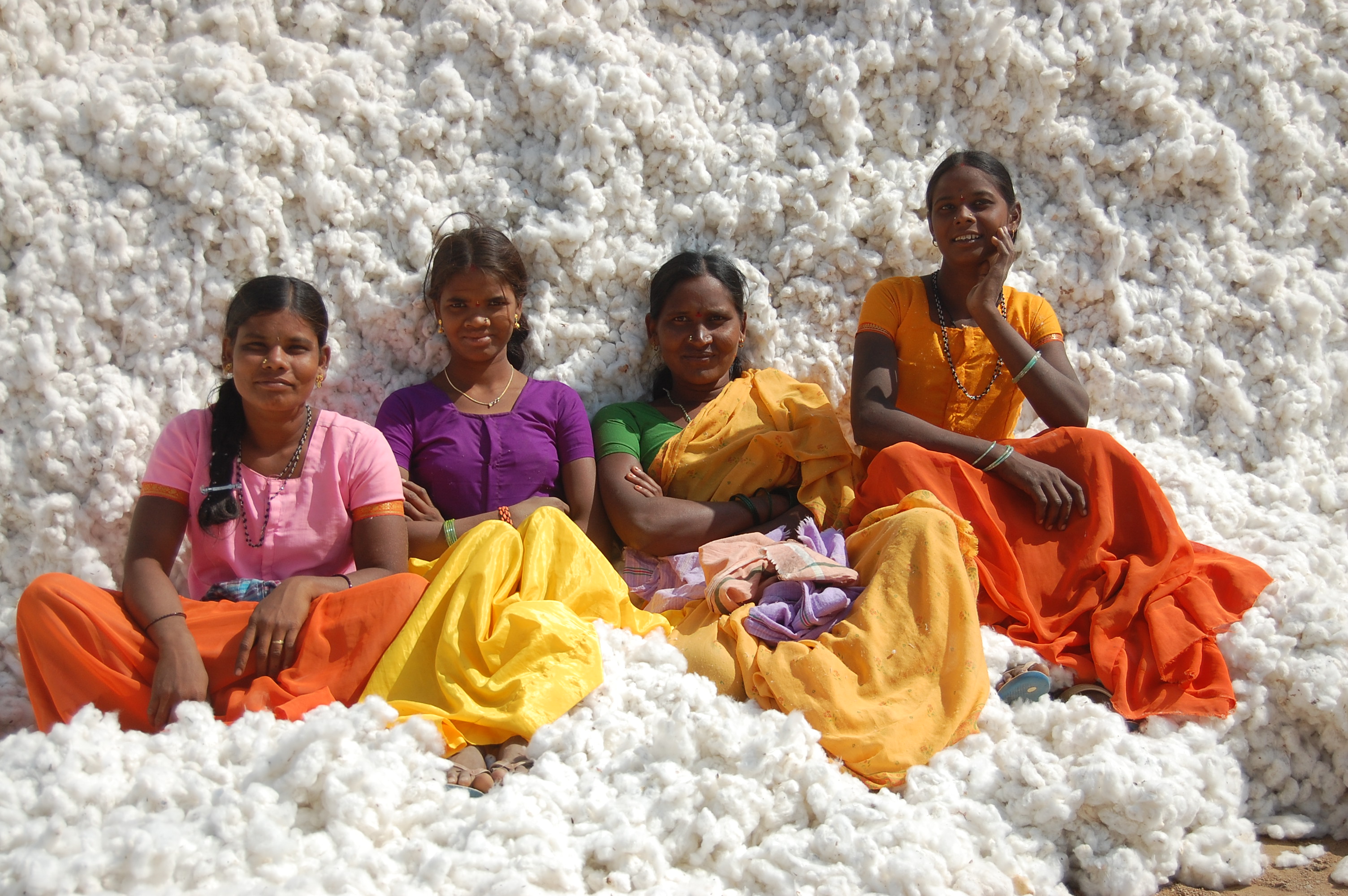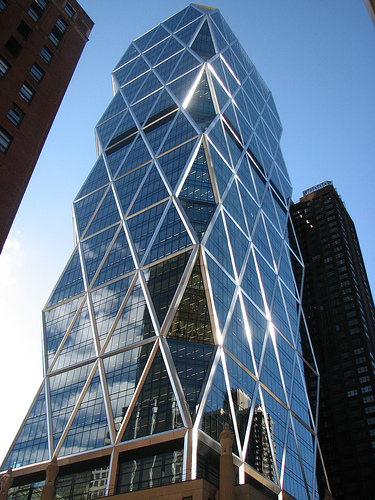 While doing laundry, we read our clothing labels – “wash in cold water”and “tumble dry low”. But do we pay attention to the “made in…” labels such as Made in India or Made in Peru? What does that actually mean? And where is the transparency? Fair Trade USA (formerly TransFair USA) hopes to shed light on the issue by tackling the fashion industry head-on.
While doing laundry, we read our clothing labels – “wash in cold water”and “tumble dry low”. But do we pay attention to the “made in…” labels such as Made in India or Made in Peru? What does that actually mean? And where is the transparency? Fair Trade USA (formerly TransFair USA) hopes to shed light on the issue by tackling the fashion industry head-on.
Today, the third-party certifier of Fair Trade products, launched the first US certification for Fair Trade apparel as part of a two-year pilot test, because the term “sustainable fashion” should mean more than just organic cotton or materials. It should include the working conditions and livelihoods of garment workers and cotton farmers as well.
Fair Trade ensures “cotton farmers receive a guaranteed minimum price to protect them from price fluctuations…” Hopefully, this guaranteed minimum price is significant enough to help the world’s subsistence cotton growers compete with the over-subsidized American cotton farmers.
Did you know the U.S government dishes out $3 billion a year to fewer than 20,000 cotton farmers in the U.S.? And now, the government is giving $147.3 million yearly to Brazilian cotton farmers as part of a last-minute deal to head off a trade dispute. Crazy! If Senate Republicans want to cut egregious government spending, let’s start with U.S. farm subsidies… but I digress.
http://www.youtube.com/watch?v=El3-OAlqN8E
The following sustainable fashions are ready for the holiday season from pioneering brands working with Fair Trade manufacturing facilities and cooperatives in Costa Rica, India and Liberia:
- Liberty & Justice (San Francisco) is made by the Liberian Women’s Sewing Project, which creates sustainable jobs for women’s sewing cooperatives and provides workforce development training as well as health and education programs. Celebrity designed tees for men and women are now available online and in select locations.
- Good and Fair Clothing (Austin, TX) is a new fashion brand that strives to create clothes that are both good to the earth and fair to people. Men’s and women’s tees and underpants are now available online and at local Austin retail locations.
- HAE Now (El Sobrante, CA), which stands for Humans, Animals and Environment Now, offers organic t-shirts and other blanks for wholesale, promotional printing and private label needs. All their products are made with organic cotton from the Chetna project, a farmer-owned collective in India.
- Maggie’s Organics (Ypsilanti, MI) is one of the oldest eco-apparel companies in the United States. Bená Burda, its founder, has been involved with the Fair Trade Certified Apparel and Linens Pilot since 2005, when Fair Trade USA first began to explore the sector. Women’s dresses, Men’s shirts, scarves, wraps, hoodies and camisoles are available online at www.maggiesorganics.com, and at Whole Foods Markets locations across the United States.
- Tompkins Point Apparel (Wyckoff, NJ), is a Fair Trade and organic clothing brand that creates classic American menswear while serving as a vehicle for social change. The brand donates 25 percent of its profits to education and economic development projects in the communities from which the company sources its products.
Fair Trade USA is currently working with the following brands to launch Fair Trade Certified clothing items, sourced from India, Liberia and Peru, in Spring 2011 and beyond:
- prAna (Vista, CA) is an active living brand that offers a harmonious blend of functional design and progressive style. The brand will launch a women’s Fair Trade Certified graphic tee that will be available in February 2011.
- Autonomie Project (Boston, MA) will offer Little Green Radicals™, a line of children’s Fair Trade and eco-friendly apparel. All of Little Green Radical’s Fair Trade products are made with the highest quality organic cotton. Little Green Radical’s Fair Trade products include quirky and cute playsuits, bibs, t-shirts and hoodies made with gentle, high quality organic cotton grown according to biodynamic standards, the highest level of sustainable agriculture.
- Greenlight Apparel (Fremont, CA) is an activist clothing brand that produces casual and technical apparel for marathons, sporting events, and corporate events. With a mission to eradicate child labor, Greenlight donates 10 percent of each sale to its Partners For Change, grassroots organizations that have helped rescue over 200 children from illegal child labor. Certified products will be available online and at Sports Basement starting in February.
- Indigenous Designs (Santa Rosa, CA), is a leader in certified organic contemporary fashion. Founded in 1994, Indigenous pioneered a socially just cottage industry production model with over 300 knitting and hand-looming artisan groups and cooperatives throughout South America. Indigenous is sold in over 500 premium U.S. retail locations and is available now online.
- Jonano (Pittsburgh, PA) makes contemporary women’s sportswear, women’s and men’s lounge wear, baby wear, and spa products such as towels and robes. Their signature Fair Trade Certified robe will be available for Valentine’s Day.
- Marigold Fair Trade (Seattle, WA) works with a cooperative of 300 women to produce organic apparel, accessories and house wares from traditional Indian block printed fabrics.
Image credit: Fair Trade USA and Tompkins Point Apparel



Great coverage. I think its great what TransFair are doing and I can appreciate the effort. I posed a question (in relation to this article) on my blog here (http://www.fairtradeshoes.org/fair-trade-clothing-fair-trade-usa-transfair-usa/) I asked, whether you think that TransFair USA’s certification is better than that of Oxfam and whether it would be better to invest more resources into a better idea?
Great coverage.